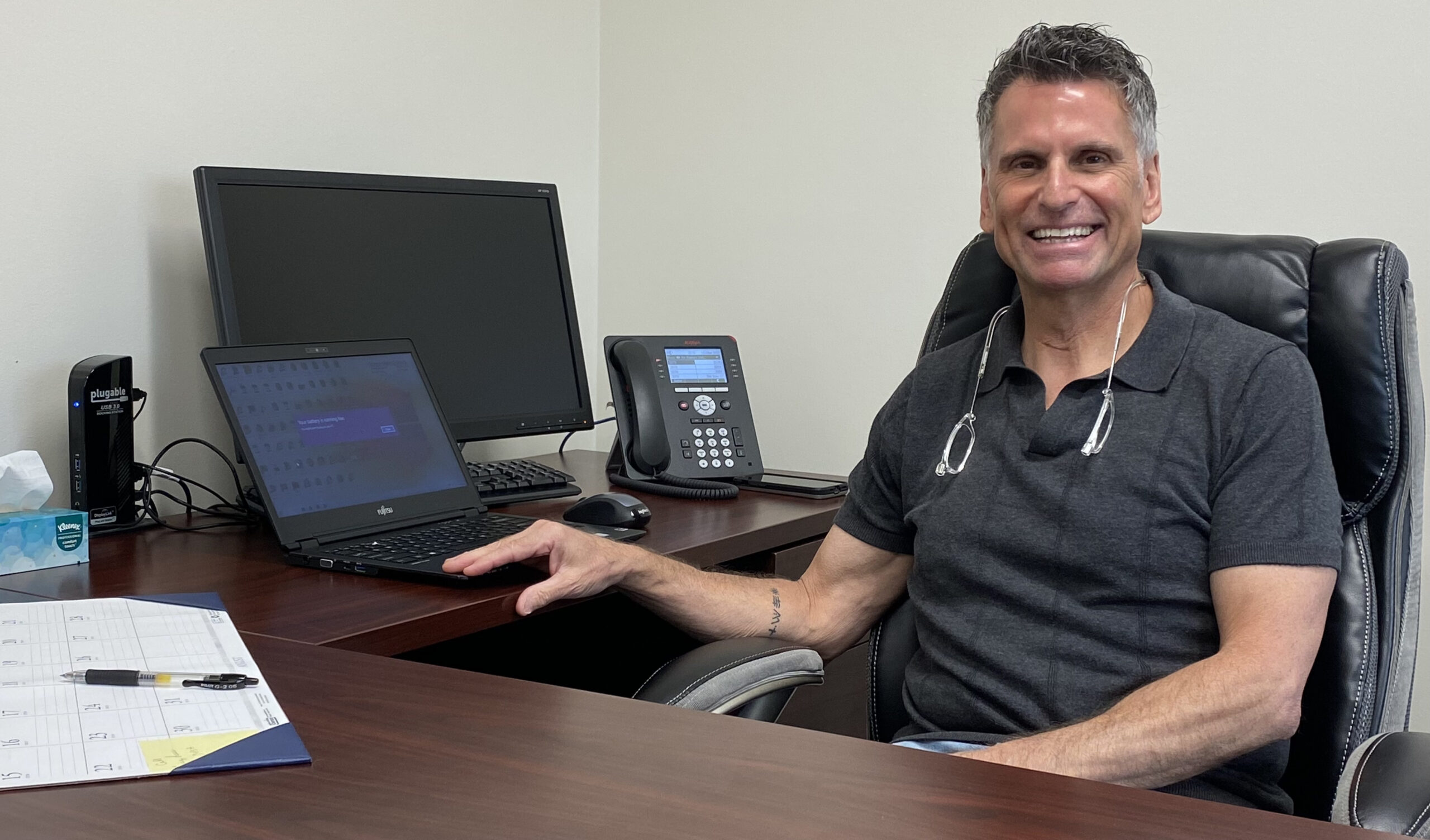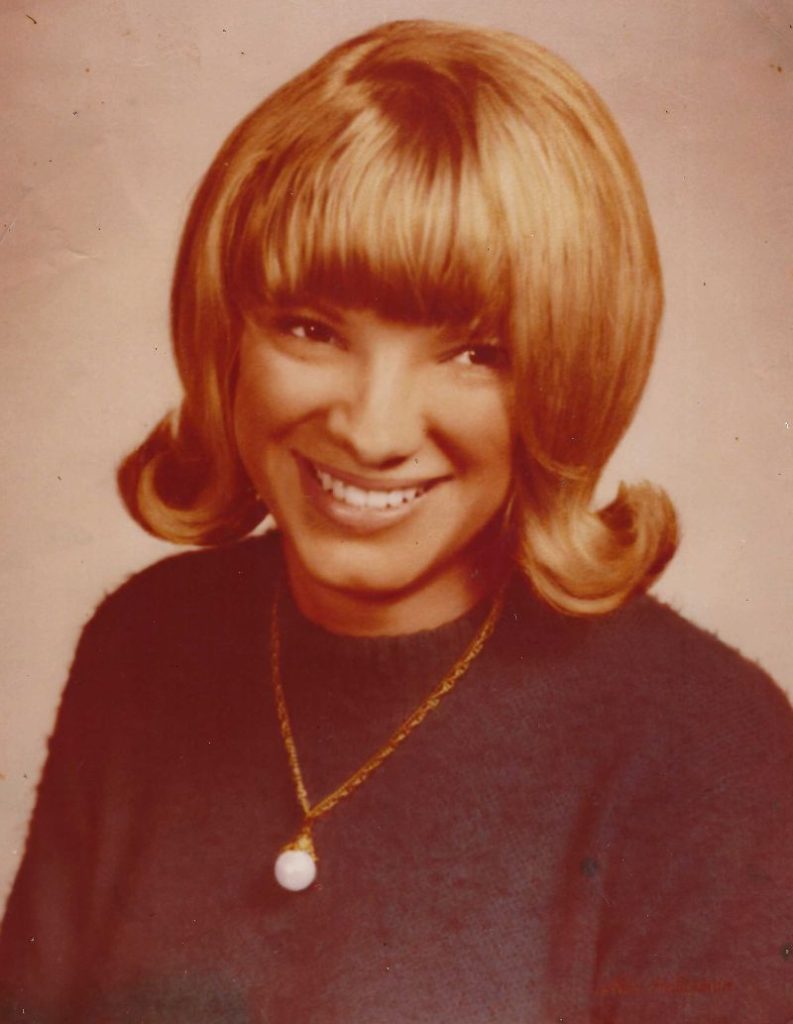Chief medical officer at QMG says vaccines should be focused on high-risk populations

QUINCY — Dr. Rick Noble believes the leaders of the health industry in the United States are missing an opportunity.
Noble has been in primary care practice at Quincy Medical Group for 38 years, and he became QMG’s chief medical officer in February. He hears the politically charged arguments for and against getting the COVID-19 vaccines. He also understands the medical concerns — it’s a new vaccine, it’s new technology, the long-term effects and so on.
He believes the focus of the fight in favor of vaccines should be focused on a particular segment of the population — overweight people older than 40 years old.
“If you have a body mass index of 25 or above and you’re 40 and older, and you’re not vaccinated, you better look at vaccine safety,” Noble said. “Let’s not worry so much about the total population. That’s going to come with time. You can keep educating people, but if you wave your finger at them and tell them they’re bad parents, it’s not going to get done.
“Why don’t we start focusing on the high-risk population?”
Noble believes living a healthier lifestyle can effectively reduce a person’s risk of being severely infected.
“When you hear stories of ‘If you get the vaccine, and we’ll give you two beer tickets,’ or ‘We’ll give you a McDonald’s coupon,’ I’m not saying people can’t do this stuff,” he said. “But I believe we could put a lot of those resources into promoting health in this instance. We haven’t had a healthcare leader or a group that’s just out there really, really promoting overall wellness.
“Maybe that won’t be a big deal for this pandemic, but how about if we get you healthy so when the next thing rolls down the road, you as an individual will be better equipped to manage it from a wellness standpoint? We haven’t taken advantage of it to promote it.”
Noble has heard many explanations why his patients are hesitant to get the COVID-19 vaccine.
“To those people, I say, ‘Let me educate you,’ ” he said. “I still will take care of them and treat him as a human being. Let’s just continue the conversation.”
Noble recently addressed a series of “reasons” given by patients and offered his thoughts on each.
I can’t afford a vaccine.
NOBLE: Very simple. It’s free. People really don’t bring that up any more.
Not all of the vaccines have full FDA approval.
NOBLE: Pfizer now has full FDA approval. Approval by the FDA is used as the gold standard of care by all medical students, medical residents and practicing physicians. When you have a vaccine and a procedure, and the FDA looks at the risk benefit and efficacy and approves it, and it’s now how we teach our medical students … that is now the gold standard of care.
Johnson & Johnson and Moderna are still under emergency use. The FDA has the ability in an emergency or emergency situation, if they have enough data, to weigh what is the risk and the benefit. That is an independent panel with no special interest to any pharmaceutical company. There’s no special interest. If they deem the benefit outweighs the risk, and even though they haven’t completed the complete series of phase three studies, they can ask for emergency use. That is not just for this pandemic. That has always been their ability to do that. The good thing about that is whether it’s a medication, treatment or prevention measure, we can release it to the public without having to wait another year or two years to complete typically stringent studies before the public ever gets their hands on it.
I’m young. I’m healthy. I don’t need it.
NOBLE: What I do with my job and with any of these people is no different than if those people are 60 years of age. My job is to educate them. My job is to find out what is their hesitancy, and if their hesitancy simply is, “I’m healthy, and therefore I don’t need it,” then we sit down and we look at the data. What is the safety of the vaccine in that age group? And then we look at what is the risk now.
From the onset of COVID, the CDC and the government have always changed the goalposts. What I mean by that is, if you look back 18 months ago when COVID first started, it was, “We cannot have the health system overrun. We have to shut everything down so our health systems will not be overwhelmed.” Like what happened in Europe, Italy and Spain? There were people treated in hallways, and the United States saw huge pockets of health system collapse. You couldn’t get PPE (personal protective equipment). We have got to shut the system down.
Then it moved from that to, “How many cases do we have?” Well, that doesn’t really matter to me. Am I worried that 25-year-olds got sick for three days and then felt great? I’m not worried about that. I’m worried about the at-risk people. Now we have a vaccine, and we’re still worried about the numbers. It’s changing dynamics of now. We’re reverting back to people who are vaccinated need to do this for everybody who’s not vaccinated.
I’ve already had COVID. Therefore, I don’t need to be vaccinated.
NOBLE: So there is a natural immunity obviously. We know that natural immunity is more than just circulating levels of antibodies in the bloodstream. Natural immunity to the original COVID virus likely doesn’t impart complete immunity to variance, which would go back to why we take different influenza shots each year. Viruses mutate. I tell patients who have had COVID and documented antibodies that they still have the potential of getting sick with the variant. If you’re 40 and above, and you have the risks of age, obesity, diabetes, high blood pressure, COPD, I will I tell them natural immunity is fantastic. But in this case, we don’t know if it imparts immunity against variants. To these people, I recommend the vaccine.
To date, there are to enough studies on natural immunity, its ability to fight new variants and its ability to maintain immunity. The most compelling study out is out of Israel, which did state that natural immunity was better than vaccine immunity, but it had some shortcomings. What we can tell from data we have is that natural immunity, combined with vaccinated immunity, significantly increases protective effect against severe disease. There’s a significant boost to have booth.
Vaccine immunity is not a 100 percent safeguard from getting a COVID infection. It has always significantly reduced severe disease as a result of getting a COVID infection. These vaccines are 90 percent effective in reducing severe disease.
The vaccine might affect my reproductive system.
NOBLE: Yeah, that’s been disproven. That was an early hesitancy, right. We are to the point now that it has been approved (for pregnant women) by the Society for Maternal-Fetal Medicine, the American College of Obstetrics and Gynecology, the CDC and the FDA. We are recommending is that if you’re planning pregnancy or if you are pregnant, the pregnancy imparts an increased risk of a moderate to severe COVID infection to a certain extent. So we’re recommending the COVID vaccine for pregnant women.
The COVID vaccine will alter my DNA.
NOBLE: That was an early hesitancy. The reason that came out was that Pfizer and Moderna use the newest technology called messenger RNA. It was inferred that if they’re putting RNA into your body, it will affect your own DNA. It doesn’t do that.
It’s none of your business whether I get vaccinated.
NOBLE: Quincy Medical Group wasn’t the only one across the country which had the early wave of people who were lined up to get the vaccine. Then there was the second wave of people who said, “This person got it. That person got it. I know them. I trust them. So I’m going to go get it.” As you start to run through those groups of patients, you then get now down to the group of patients who are going to have a reason that no matter how well you educate them, and that is still our job, they choose not to be vaccinated. We have to accept that.
I’ll wait for the rest of the world to get vaccinated, and then I’ll have herd immunity.
NOBLE: I guess you can tie it to the previous one. I’m just not going to get the vaccine, and I will then wait for herd immunity. My answer to them is that we don’t know yet at the present time what that number was. Remember, viruses are mutating all the time. We may have herd immunity, but we may not have herd immunity to a new variant. We are now nine months into billions of vaccines, and we’ve yet to experience any significant vaccine reactions.
I don’t trust all of you people making all this money at these hospitals.
NOBLE: Where you combat that lack of trust is the trust they have in you as a physician and a caregiver. I’ve been doing this for 38 years, and the vast majority of my patients are going to trust what I say to them. Now does that mean that they will act on everything that we talk about? Not necessarily, but at least we have a relationship. It goes back to people who know you. There’s some patient-physician trust that goes a long way in helping people to continue to move in the right direction. My one visit doesn’t mean they go down to the Adams County Health Department to get the vaccine, but maybe I put a little thought in their mind that maybe when they have a discussion with somebody else, and they hear the same thing and they have discussion, then they’re like, OK.
I don’t want to deal with the side effects of getting the vaccine.
NOBLE: I have no idea what percentage of my patients have been vaccinated, but I can say I have only received probably a handful of calls from people who had what they deemed as significant side effects — fever, body aches, generally fatigued and tired that lasted three to five days. By keeping in contact with them, they simply got better went back to their normal life. Vast majority of the people? Minimal. You have to weigh that against the potential risk of not being vaccinated.
The numbers absolutely show that if you’re not vaccinated, and you are one of those high-risk people simply based on age, there’s a significant risk that you can have a moderate to severe infection leading to hospitalization and subsequent issues. With Pfizer becoming fully approved by the FDA, that should allow patients some semblance of trust that there were no significant side effects or adverse events to change the course of offering the vaccine. There’s always vaccine side effect risk.
God will protect me.
NOBLE: My best answer to that is God can perform a miracle himself at any point in time, because I’m a faith person. So I truly believe that if God chooses to perform a miracle and protect an individual or us as human population, he can do that in any instant. But he also helps protect us through allowing us to develop and think about things and develop our own stuff as well. God gave us a brain, and God gave us the ability to utilize that brain and to develop things like polio vaccines and vaccines for measles, mumps, rubella. I believe God works through us also.
Miss Clipping Out Stories to Save for Later?
Click the Purchase Story button below to order a print of this story. We will print it for you on matte photo paper to keep forever.

